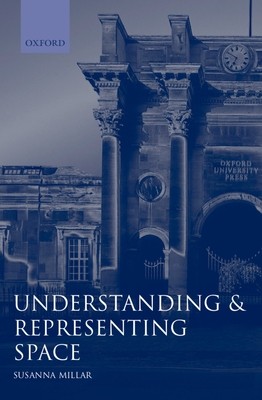
- We will send in 10–14 business days.
- Author: Susanna Millar
- Publisher: Clarendon Press
- ISBN-10: 0198521421
- ISBN-13: 9780198521426
- Format: 15.2 x 22.9 x 2.2 cm, hardcover
- Language: English
- SAVE -10% with code: EXTRA
Reviews
Description
How we perceive and understand the space around us is one of the central topics of cognitive psychology. This book challenges the traditional notion that vision is the main sensory modality for this purpose, and compares vision with touch and movement as sources of spatial information in the absence of sight. Dr Millar's work with blind and sighted children has led her to formulate a coherent framework for findings from neuropsychology, neurology, and neuroscience. This framework assumes that specialized, complementary sensory inputs and outputs converge in inter-related networks, resulting in the organization of reference cues on which spatial coding depends. Addressing one of the central issues in cognitive psychology, this work will interest graduate students and researchers in cognitive and developmental psychology and visual perception, as well as educators involved with teaching and training blind people.
EXTRA 10 % discount with code: EXTRA
The promotion ends in 16d.17:45:12
The discount code is valid when purchasing from 10 €. Discounts do not stack.
- Author: Susanna Millar
- Publisher: Clarendon Press
- ISBN-10: 0198521421
- ISBN-13: 9780198521426
- Format: 15.2 x 22.9 x 2.2 cm, hardcover
- Language: English English
How we perceive and understand the space around us is one of the central topics of cognitive psychology. This book challenges the traditional notion that vision is the main sensory modality for this purpose, and compares vision with touch and movement as sources of spatial information in the absence of sight. Dr Millar's work with blind and sighted children has led her to formulate a coherent framework for findings from neuropsychology, neurology, and neuroscience. This framework assumes that specialized, complementary sensory inputs and outputs converge in inter-related networks, resulting in the organization of reference cues on which spatial coding depends. Addressing one of the central issues in cognitive psychology, this work will interest graduate students and researchers in cognitive and developmental psychology and visual perception, as well as educators involved with teaching and training blind people.


Reviews